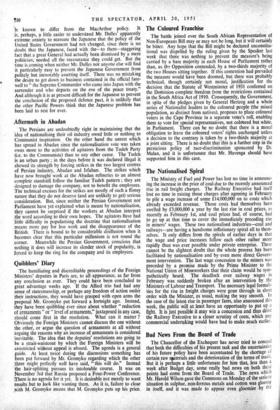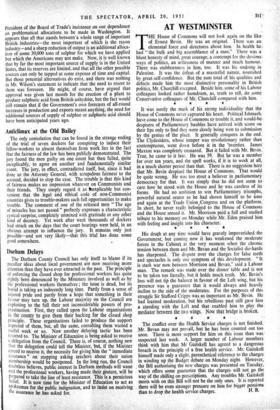Bad News From the Board of Trade •
The Chancellor of the Exchequer has never tried to conceal that both the difficulties of his present task and the uncertainties of his future policy have been accentuated by the shortage cf certain raw riaterials and the deterioration of the terms of trade. But it is perhaps a little unfortunate for him that, less than a week after Budget day, some really bad news on both these points had come from the Board of Trade. The news whit-11 Mr. Harold Wilson gave the Commons on Monday of the serious situation in sulphur, non-ferrous metals and cotton was gloomy in itself, and it was made to appear even gloomier by the President of the Board of Trade's insistence on our dependence on problematical allocations to be made in Washington. It appears that all that stands between-a whole range of important British industries—the most important of which is the rayon industry—and a sharp reduction of output is an additional alloca- tion of some 30,000 tons of sulphur for which we have applied but which the Americans may not make. Now, it is well known that by far the most important source of supply is in the United States, that its reserves are limited, and that all the other possible sources can only be tapped at some expense of time and capital. But those potential alternatives do exist, and there was nothing in Mr. Wilson's statement to indicate that the need to resort to them was foreseen. He might, of course, have argued that approval was given last month for the erection of a plant to produce sulphuric acid from British anhydrite, but the fact would still remain that if the Government's own forecasts of all-round increases in production and exports meant anything, the need for additional sources of supply of sulphur or sulphuric acid should have been anticipated years ago.



































 Previous page
Previous page